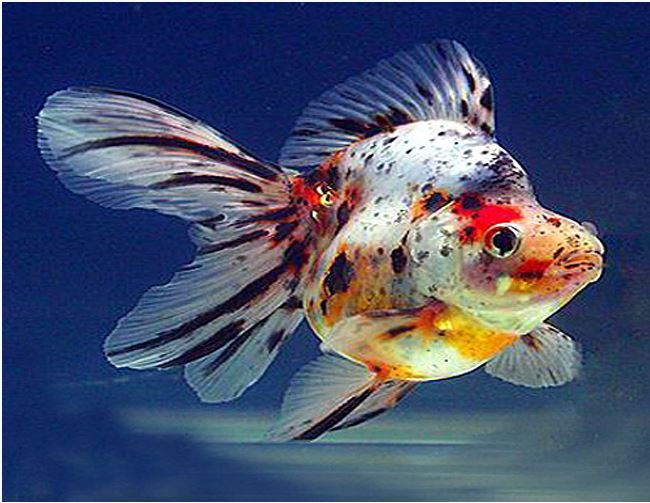Calico
Calico goldfish is not a specific breed but a term for any goldfish variety displaying a distinctive, mottled color pattern on nacreous (pearly) scales. This unique coloration is characterized by random patches of red, orange, white, black, grey, and blue pigments. Key Characteristics - Nacreous Scales: The defining feature of a calico goldfish is its scale type, which is intermediate between solid metallic and transparent (matte) scales. This mix gives the fish a slightly reflective, pearly sheen. Mottled Pattern: The color pattern resembles the multi-colored coat of a calico cat, with no two fish having the exact same markings. The blue coloration is a highly prized feature in this pattern, which comes from black pigment within the body wall visible through the nacreous scales. Color Changes: Calico coloration can change throughout a goldfish's life due to factors like sunlight exposure, diet, water quality, and genetics. Juvenile goldfish often start as a dull, brownish-grey and develop their vibrant calico pattern as they mature.
Basic Information
Identification & Characteristics
Identification
calico goldfish is not a specific breed but a term for any goldfish variety displaying a distinctive, mottled color pattern on nacreous (pearly) scales. This unique coloration is characterized by random patches of red, orange, white, black, grey, and blue pigments.
Sexual Dimorphism
Females have rounder, thicker bodies and a rounder vent, while males are slimmer and have a more oval vent. Males often develop small white spots called tubercles on their gill covers and fins during breeding, and their pectoral fins are longer and pointier compared to the shorter, rounder fins of females.
Behaviour Details
Living in small groups , naturally found at mid-depth and near the bottom.
Water Parameters
Reproduction
Goldfish exhibit a specific broadcast spawning pattern triggered primarily by environmental changes that mimic spring. The process involves distinct courtship behaviors, the external release of thousands of adhesive eggs and sperm, and a high risk of the eggs being eaten by the parents
Distribution & Origin
Native Origin
China
World Distribution
Destributed Most part of the Asia, America , Europe and Australian continents
Photo Gallery
